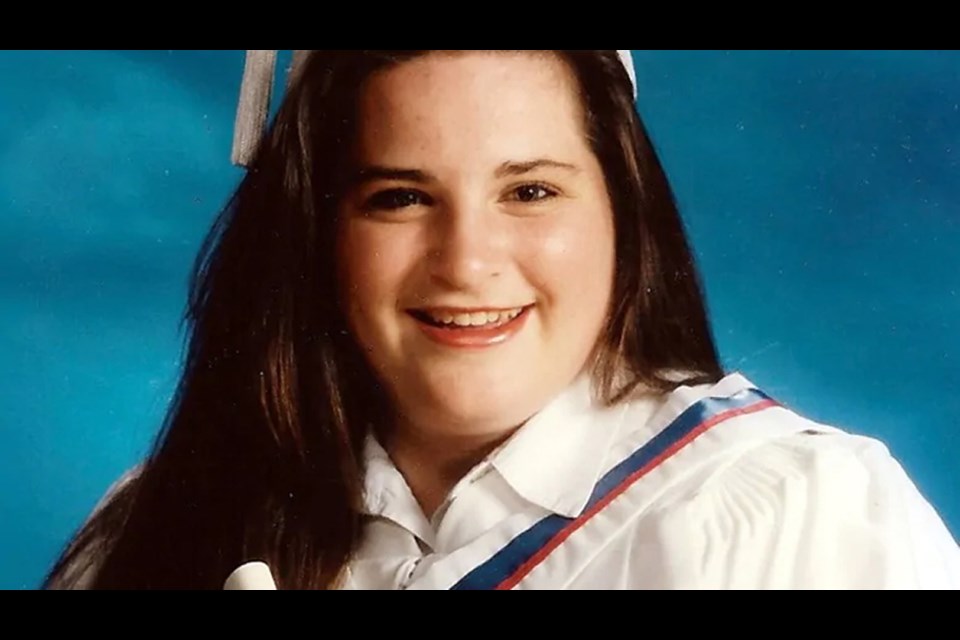A woman who says she helped Perez Adaryll Cleveland dispose of a dead body told a Winnipeg jury after 6 1/2 years in an abusive relationship, she would have done anything he asked.
"I don't know how to explain it. I went through many years of being with this guy, and I was under a severe amount of emotional control. I mean, he probably could have told me to try and touch the sun and I would have done it," Holley Sullivan testified Friday during Cleveland's first-degree murder trial.
Cleveland, 46, has pleaded not guilty in the August 2016 death of 42-year-old Jennifer Barrett. He is standing trial in the Court of Queen's Bench before Chief Justice Glenn Joyal and a jury of seven men and five women.
Barrett and Sullivan were two of Cleveland's five "wives," the jury was told, although Sullivan said she never had any kind of contract with the man she met while working in a Toronto call centre in 2010.
Sullivan was one of six women living with Cleveland in a Waverley Heights home (including his adult daughter) when Barrett died. Sullivan testified she didn't see Cleveland attacking Barrett, but she heard screams coming from the basement.
Before she died, Barrett tried to run away, Sullivan said. Dispatched by Cleveland to look for Barrett, she said she checked women's shelters, the airport and bus station. Barrett returned to the home about 18 hours later.
Sullivan said she convinced Barrett to come back inside because Cleveland had told her the attacks would stop. Barrett was already badly beaten — "black and blue" all over and she couldn't lift her arms, Sullivan said.
Barrett went to Cleveland's bedroom in the basement, Sullivan said, and she never saw her alive again.
A few days later, she said Cleveland told her Barrett was dead, and instructed her to get rid of the body.
Now 30 years old and serving a three-year prison sentence for acting as an accessory to murder after the fact, Sullivan was a university student studying science when she met Cleveland. He enlisted her help after Barrett's death because of her education, Sullivan said, and she found herself researching "liquid cremation."
Members of Barrett's family watched in the courtroom gallery Friday as Sullivan described an eight-day process of trying to speed up the decomposition of the former nurse's body. She used drain cleaner, a propane heater and a steel barrel, which was moved into the backyard of 38 Forest Lake Dr.
Police found the barrel and Barrett's DNA when they searched the house Dec. 1, 2016, about a month after Cleveland and the other women had already cleared out. Investigators were unable to determine how Barrett died.
On the witness stand, Sullivan described the days-long torture and interrogations she said Cleveland subjected her to over the years, often spurred by jealousy and paranoia. During the first of those violent assaults, he duct taped her hands and feet, cut her thighs with a meat cleaver, and demanded the names and addresses of her family members and threatened to hunt them down if she ever tried to get away.
The threat stayed with her as the group moved around the country, she said, listing a litany of domestic violence incidents to the jury: Cleveland once tied her to a bed and tried to sexually assault her with a hot curling iron; a scar on her right cheek is the result of him using a boxcutter and threatening to cut her eye out.
"If you cannot listen, then you must feel," Sullivan said Cleveland would often tell her.
Her testimony shed light on the inner workings of the group. Sullivan said she was often the only one of the women who went to work, and her role was to complete "missions" to fund the rest of the household. She would hop from service job to service job, skimming debit cards along the way, and then use the fraudulently obtained card numbers in the United States.
When she was arrested on fraud charges in Winnipeg and had to serve 14 months in provincial jail, she said Cleveland blamed her for "ruining his life" and told her she owed him $80,000 for his retirement.
Before her release in June 2016, Sullivan said there was "very little" drug use in the house. Afterward, Cleveland and almost all of the women were using meth, she testified.
She, too, developed a daily meth habit. During the time she was disposing of Barrett's body, Sullivan said she was awake for eight days in a row, while Cleveland was staying at a hotel.
Crown prosecutor Chris Vanderhooft asked her why she didn't call police once he was out of the house, and why she continued to see him daily at various hotels around Winnipeg when he went into hiding.
"That was the first time in my life I was probably most scared of him than I ever was, right? I didn't know what else to do, so I just did what he said," she testified.
After Barrett's death, Sullivan said Cleveland became convinced she was part of a conspiracy to ruin him. He and the rest of the women abandoned the Forest Lake Drive home and moved into a place on Magnus Avenue.
Sullivan said she was tortured in the basement there for several days, until she managed to escape in November 2016.
"He said to me that Jen was an accident, but he was going to kill me intentionally and enjoy it," Sullivan testified.
She is to be cross-examined Tuesday by Cleveland's defence lawyer, Steven Brennan.
Reprinted by permission of the Winnipeg Free Press. Katie May can be reach by email at [email protected]. Follow her on Twitter, @thatkatiemay.
